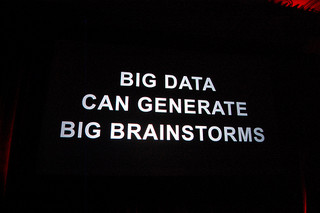OECD publishes new guidelines on research ethics & new forms of data
Posted: December 14th, 2016 | Author: Sven | Filed under: Report, Research Data | Tags: big data, Guidelines, oecd, privacy | Comments Off on OECD publishes new guidelines on research ethics & new forms of data The variety and volume of the New Forms of Data that are available with potential to inform research
The variety and volume of the New Forms of Data that are available with potential to inform research
in the social sciences is rapidly expanding. Much of this falls in the category of ‘Big Data’ which are
characterised by their size and complexity and the fact that they are often not amenable to the more
traditional forms of statistical analysis used in social science research.
New kinds of data are rapidly becoming available in massive quantities, providing a record of the transactions we carry out, the communications we make and other social and economic activities. These data offer significant potential for research in the social sciences and beyond, with the possibility of new insights and benefits to society, health and the economy. Although these new forms of data provide exciting possibilities for future research, using them also presents ethical and practical challenges – the risk of disclosure of identities, the ethics of using such data in research and reputational risks for organisations collecting or creating data.

 The Council on Library and Information Resources (
The Council on Library and Information Resources (





